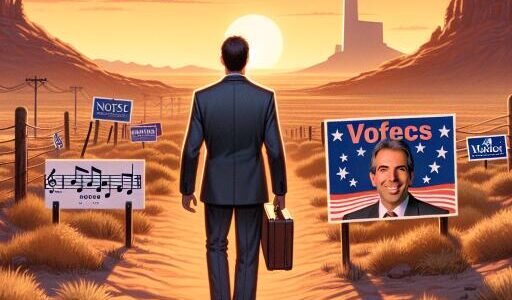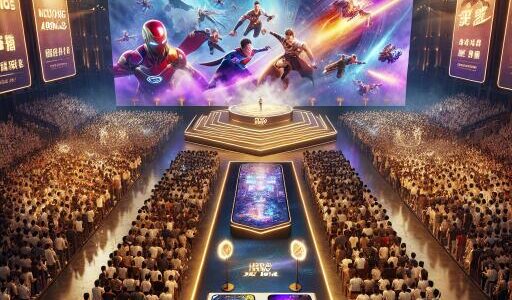With AI, Dead Celebrities Are Working Again – and Making Millions
As Halloween approaches, imagine being able to listen to The Legend of Sleepy Hollow, narrated by none other than the ghost of James Dean. Although the actor’s career ended in 1955, his legacy is very much alive, thanks to artificial intelligence (AI).
James Dean’s estate, along with estates of other iconic figures such as Judy Garland, Laurence Olivier, and Burt Reynolds, signed a deal with AI voice-cloning start-up ElevenLabs. As part of the company’s innovative “iconic voices” project, these legends now lend their voices to books, articles, and other texts within ElevenLabs’ Reader app.
AI has ignited a surge in the dead celebrity industry, offering voiceover work, digital human acting jobs, and immersive stage shows. This avenue has proven extremely lucrative. Take Michael Jackson, for instance – despite being $500 million in debt at the time of his death, his estate has amassed a staggering $2 billion, thanks to AI-driven projects like jukebox musicals and posthumous albums. AI’s advancements mean that even deceased artists can still generate new art, keeping their legacy alive.
Mark Roesler, an intellectual property lawyer, has represented over 3,000 celebrities, most of whom are deceased. Roesler, founding his company CMG Worldwide more than four decades ago, has facilitated around 30,000 deals. Among current clients like Rosa Parks and Malcolm X, he’s also negotiated a deal for Jerry Garcia with ElevenLabs. Roesler identifies two key revenue streams for living celebrities: personal services, such as concert income, and intellectual property. When a celebrity dies, their personal services income halts, leaving only intellectual-property revenue, which used to decline by 10% annually. However, with technological advancements like AI, this revenue can now increase.
Travis Cloyd, founder and CEO of Worldwide XR, where Roesler is chairman, illustrates how AI has transformed filmmaking. He has cast James Dean in an upcoming movie, Return to Eden. Filmmakers now have two options: hiring an actor or creating a digital human of James Dean. This process involves machine learning and existing source materials, including family videos, to create a digital model of the actor. Additional elements like skin texture and vocals are layered using body doubles and advanced technology.
This technique is reminiscent of the controversial CGI appearances of Paul Walker in Furious 7 and Peter Cushing in Rogue One: A Star Wars Story. A large role by the late Ian Holm in this summer’s Alien: Romulus has sparked ethical debates around AI, even though it was approved by his family and estate.
AI’s impact on Hollywood became evident after actors’ and writers’ strikes last year, mainly over AI. This led to a deal between SAG-Aftra and brands allowing the replication of living actors’ voices in AI audio ads on a job-by-job basis. As demand grows, AI projects may soon become the main revenue source for celebrities’ estates, as seen with ABBA Voyage in London. This concert, featuring virtual-reality avatars of ABBA, has been generating over $2 million weekly. These CGI renderings could theoretically continue generating income for their estates long after their deaths.
However, AI technology isn’t without its skeptics. Jeff Jampol, who manages estates of legends like Janis Joplin and The Doors, views AI as a “nonstarter” and equates it to fleeting trends like NFTs. He refuses to let AI replicate Jim Morrison’s voice, arguing that anything Morrison didn’t directly say would be a “travesty.”
Svana Gisla, co-producer behind ABBA Voyage, believes AI cannot replace the emotional connection and artistry that real human communication in art provides. She asserts that technology will always fall short in delivering this vital aspect of art.
The ultimate test for AI in reviving dead celebrities comes next spring with Elvis Evolution at ExCeL London. This immersive biopic aims to capture Elvis Presley’s iconic stage presence in hologram form, featuring real-life performances, facial movements, and his voice fed into AI software. Andrew McGuinness, founder and CEO of Layered Reality, emphasizes that the hologram is not a mere digital fabrication, but a meticulous recreation based on extensive real-life data.
As we move forward, the contentious debate between the ethical implications and technological marvel of AI in resurrecting dead celebrities is set to intensify. With the ability to generate unprecedented income for estates and create new experiences for fans, AI is undeniably reshaping the legacy of Hollywood icons.








